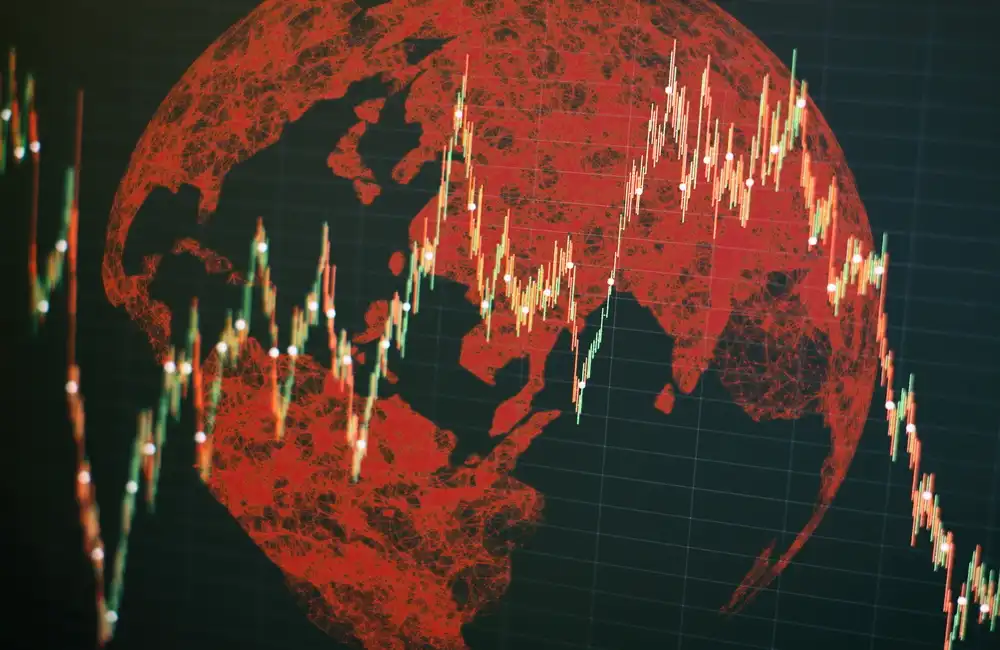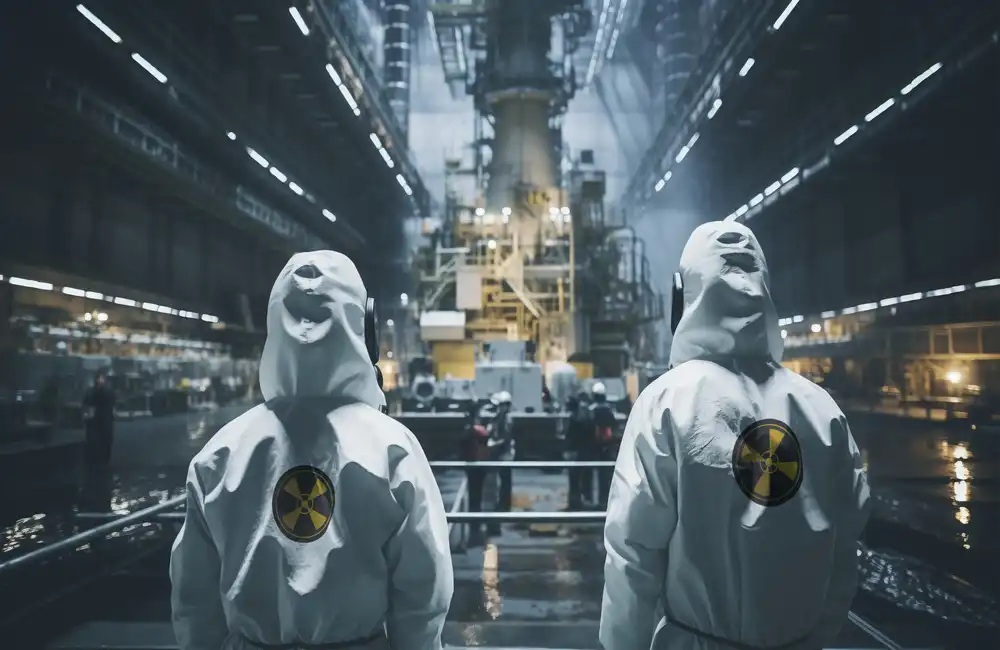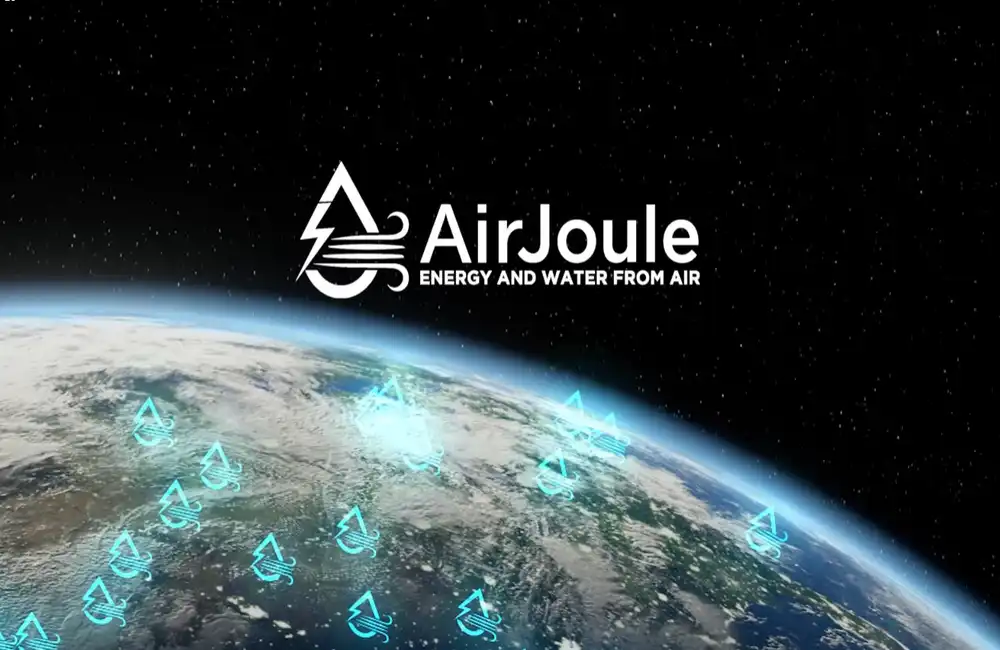The United States and Iran held their second nuclear negotiation session in Rome on April 19, 2025 which promised significant implications for international diplomacy together with global energy markets and worldwide investors.
Through Oman's mediation Iran's nuclear agenda has become the focal point of international scrutiny once more during these discussions which represent a pivotal point for regional stability and economic security.
The analysis within this article evaluates the historical background of these negotiations while exploring their possible geopolitical consequences and effects on international energy markets and UK investors.
Background of the Negotiations
The nuclear talks between the United States and Iran represent an ongoing diplomatic saga that has persisted over many years and has faced numerous challenges. The 2015 Joint Comprehensive Plan of Action represented a pivotal achievement in international diplomacy that limited Iran's nuclear program while offering economic incentives. The United States under President Donald Trump ended the agreement in 2018 by withdrawing from it and reimposing severe sanctions on Tehran.
Tensions between the two countries increased after the event occurred. Iran has reportedly developed its uranium enrichment technology to achieve levels up to 60%, which exceeds the 3.67% threshold set by the JCPOA. The international community's worries have intensified because Iran's nuclear advancements suggest it is approaching nuclear weapon capability.
The Rome talks seek to re-establish potential for a fresh agreement by synchronising nuclear compliance with sanctions relief during this period of increased tensions.
Details of the Rome Talks
The Rome talks operated through indirect communication methods as mediators from Oman helped bridge the dialogue between the two nations. President Biden’s administration key strategist envoy Steve Witkoff headed the U.S. delegation. Foreign Minister Abbas Araghchi served as the key figure in advancing Tehran’s diplomatic objectives during the Rome talks.
Discussions focused primarily on determining uranium enrichment standards and establishing a timeline for sanction removal. Washington insists on strict verification measures to guarantee Tehran's adherence to future agreements while Iran seeks to eliminate all U.S. sanctions implemented after 2018. The different priorities held by each party reveal the complexity inherent in reaching an agreement.
Despite cautious optimism surrounding their progress both sides continue to disagree on multiple fundamental issues. Both regional actors and international observers recognise that the stakes are exceedingly high.
Geopolitical Implications
The resolution of the Iran-U.S. nuclear talks carries major geopolitical implications for the Middle East and the wider international community. Successful negotiations between Iran and the United States could improve relations with Gulf neighbours and reduce the chance of military conflict in a volatile region plagued by proxy wars and political turmoil.
The involvement and responses of other global powers together with regional actors create additional complexity for the situation. Although Israel has consistently opposed Iran's nuclear program it stays doubtful about the agreement and might act alone if it finds the deal insufficient. The Saudi government together with other GCC members may request security commitments from Western allies following an agreement.
China and Russia represent influential forces in the geopolitical chessboard because they have preserved their connections to Tehran. A diplomatic agreement reached in Rome has the potential to adjust international alliances and create broad changes in power structures worldwide.
Impact on Global Energy Markets
Geopolitical stability has always been reflected in energy markets which makes the Rome negotiations another example of this phenomenon. Iran controls the fourth-largest oil reserves worldwide making its return to international markets a potential game-changer for supply dynamics and oil pricing trends.
If the nuclear deal lifts American sanctions on Iran's energy industry Iran will probably boost its oil exports. The market may achieve essential price stability after enduring pandemic-driven volatility and geopolitical turmoil like the Russia-Ukraine war.
The failure of diplomatic talks could exacerbate the strain on the global energy supply chain which would result in rising oil prices and increased anxiety about energy security. Speculation about Rome talks results in crude oil price fluctuations which demonstrate the link between diplomatic events and energy market behaviour.
Considerations for UK Investors
The Rome negotiations' impact on UK investors reaches beyond political reports by affecting their investment strategies and available opportunities. The energy industry stands to experience direct impacts from any changes in the relationship between Iran and the United States.
Energy Investments
Investors holding interests in energy firms need to observe oil price movements that might be affected by either the formation or disintegration of an agreement. The introduction of Iranian oil to the market could create advantages for downstream businesses while reducing the value of upstream exploration companies especially in the North Sea region.
Defence Stocks
If tensions remain high or negotiations fail to reach a resolution regional entities may need to allocate more resources for defence. The UK could find defence contractor investment opportunities emerging but ethical factors need consideration before proceeding.
Risk Management
Current geopolitical uncertainties require investors to adopt a careful strategy when diversifying their portfolios. By distributing investments throughout different sectors and regions investors can reduce their exposure to market disruptions that may arise from nuclear negotiation outcomes.
The fluctuating value of the pound in relation to other currencies is a critical metric for UK investors to monitor because market anxieties can drive exchange rate changes.
Conclusion
The nuclear negotiations between Iran and the U.S. in Rome represent a critical juncture that stands to transform international political and economic structures. The talks function as a diplomatic trial in a world that is becoming more divided and affect aspects ranging from regional security and alliance shifts to worldwide energy distribution networks.
UK investors need to understand international developments through the Rome talks to fine-tune their investment strategies in response to new risks and opportunities. Investors who both monitor current events carefully and diversify their investments can position themselves to handle uncertainties and seize potential growth opportunities.
Savvy investors must join the world in anticipating future developments with bated breath. The modern world's interconnected nature means that any negotiation can create effects that extend beyond its immediate scope into multiple industries and countries.

















